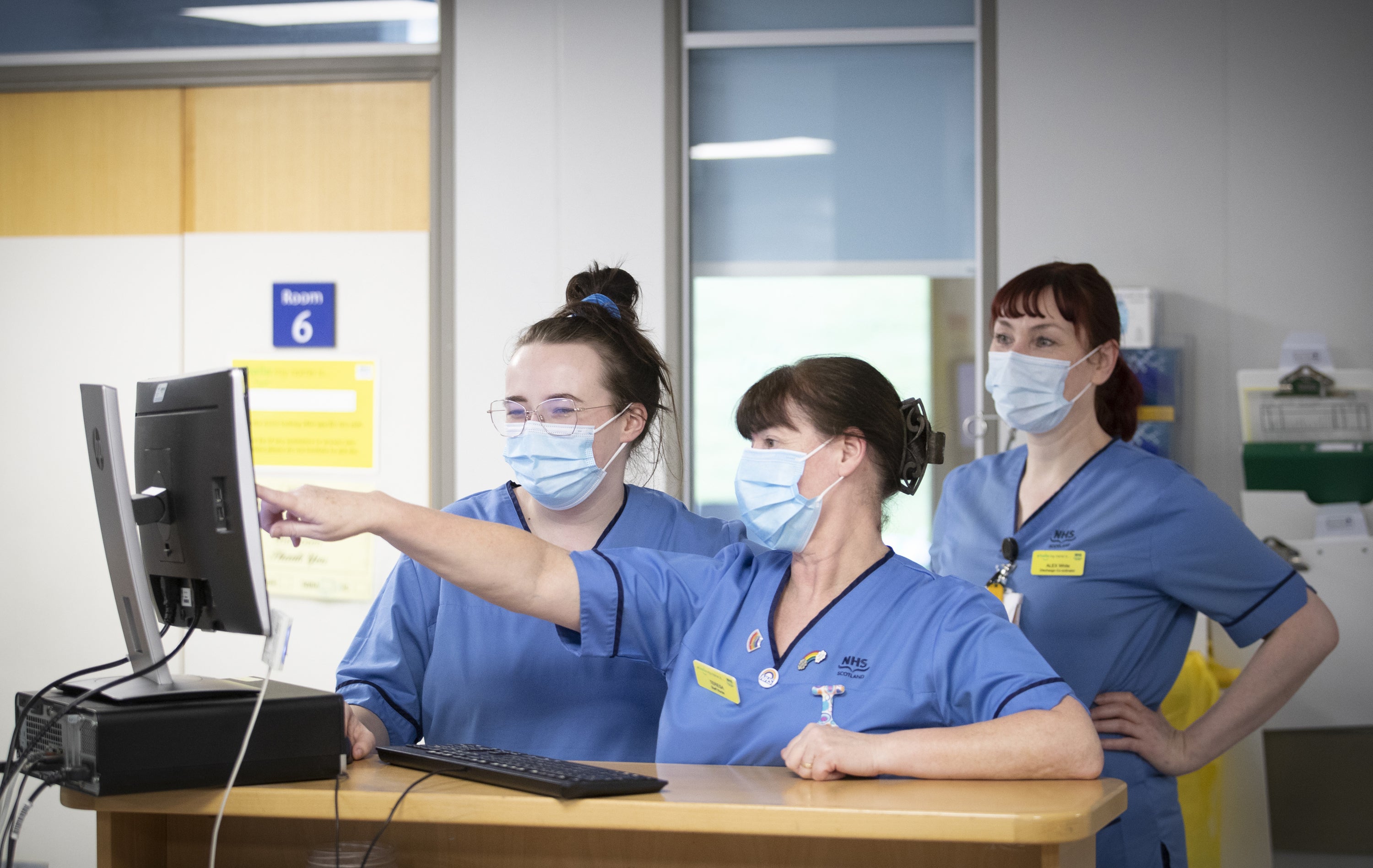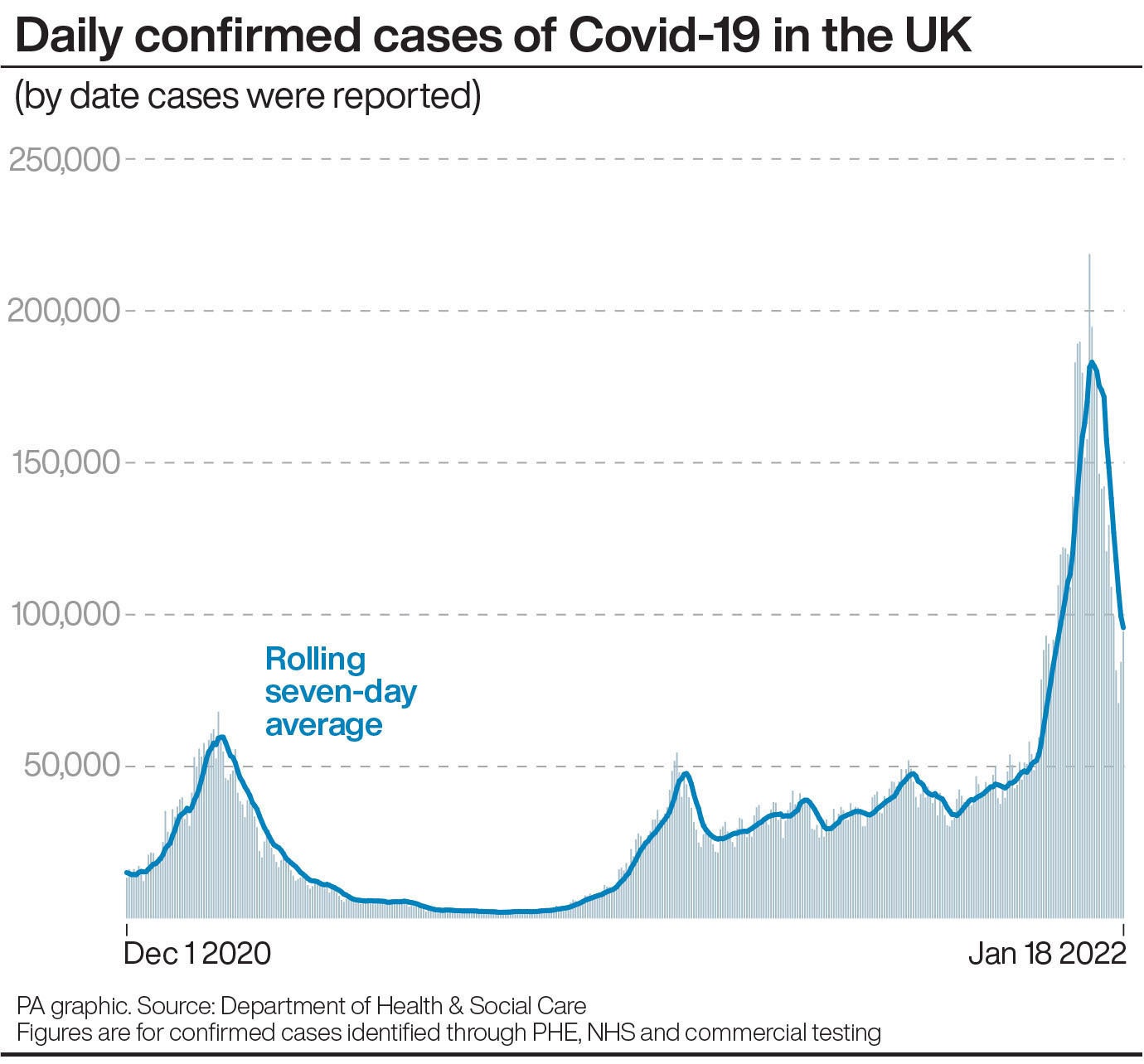Dropping Plan B will not ease pressure on NHS, nurses warn
Royal College of Nursing chief executive Pat Cullen says that the UK can’t rely on vaccinations alone

Nursing leaders have hit back at Boris Johnson after he announced that Plan B measures across England are to be scrapped.
Royal College of Nursing chief executive Pat Cullen said the country cannot rely on vaccines alone and the pressure on health services is “unrelenting”.
Meanwhile, some scientists have warned that dropping the restrictions so soon is a risk and could backfire.
Ms Cullen said: “The Prime Minister’s decision to loosen the restrictions may have relieved the pressure from his backbenchers but will do nothing to relieve the pressure on the NHS
“We can’t rely on the vaccine alone when the situation is still so precariously balanced.
The Government will regret sending the wrong signal to the public for political expediency
“Time will tell whether dropping other measures when the pressure on health and social care services remains unrelenting was wise – particularly when thousands of unvaccinated nursing staff are facing the sack.
“Ministers should adopt a cautious approach. The government will regret sending the wrong signal to the public for political expediency.
“With so many Covid-19 patients still in hospital, it would be very premature to conclude this wave is over. That is not what our members are telling us.”
Professor Lawrence Young, a virologist from the University of Warwick, said: “Removing Plan B measures in the face of extremely high levels of infection is a risk.
“With over 94,000 cases reported yesterday, talk of an end to the pandemic is premature.
“Infections are raging across Europe and other parts of the world, reinforcing the need to take a cautious approach to easing restrictions.
“Perhaps it would have been wiser to wait for another couple of weeks before removing the advice to work from home and the face coverings mandate.
“There’s no guarantee that infection levels will continue to fall and the NHS remains under extreme pressure.”
The expert said there is a need to “stay alert” for a possible resurgence of Omicron infection and for the arrival of new variants, adding: “There is no room for complacency.”

Professor Francois Balloux, from University College London (UCL), said the Omicron wave is receding in the UK and “provides a case for lifting restrictions.”
But he warned: “An overly fast return to pre-pandemic behaviour could lead to viral flares, which could cause considerable problems for the NHS, and may risk further delaying the return to ‘post-pandemic normal’.
“As such, it may be helpful if contact rates in the population didn’t shoot up immediately, but, rather, slowly increased towards their pre-pandemic level over the spring.”
He said working from home is “highly effective at reducing viral transmission” and it “would thus be ideal if the return of people to their workplace were only happening gradually.”
He added that the high level of immunisation achieved in the UK through vaccination and prior infection means that “no future viral variant can realistically set us back to a dire situation like those experienced in March 2020, or during the Alpha and Delta waves.”
There is a mistaken notion that the virus is somehow evolving to become less virulent
Dr Stephen Griffin, associate professor in the School of Medicine, University of Leeds, said: “It is striking that the Government are so adept at moving to reduce restrictions early when they have repeatedly failed to act in a timely fashion to prevent now five consecutive waves of (Covid) resulting in profound human and economic cost.
“There is a mistaken notion that the virus is somehow evolving to become less virulent, more transmissible, and this is being inaccurately lauded as endemicity by various parties.
“Endemic, sadly, does not mean benign, as sufferers of malaria, TB, HIV, and Lassa fever might tell you.”
He added that “viruses do not evolve to become less virulent, necessarily, they evolve to ensure they can thrive and transmit effectively”, and said Omicron “cannot be used to set a trajectory” for how Covid will behave in the future.